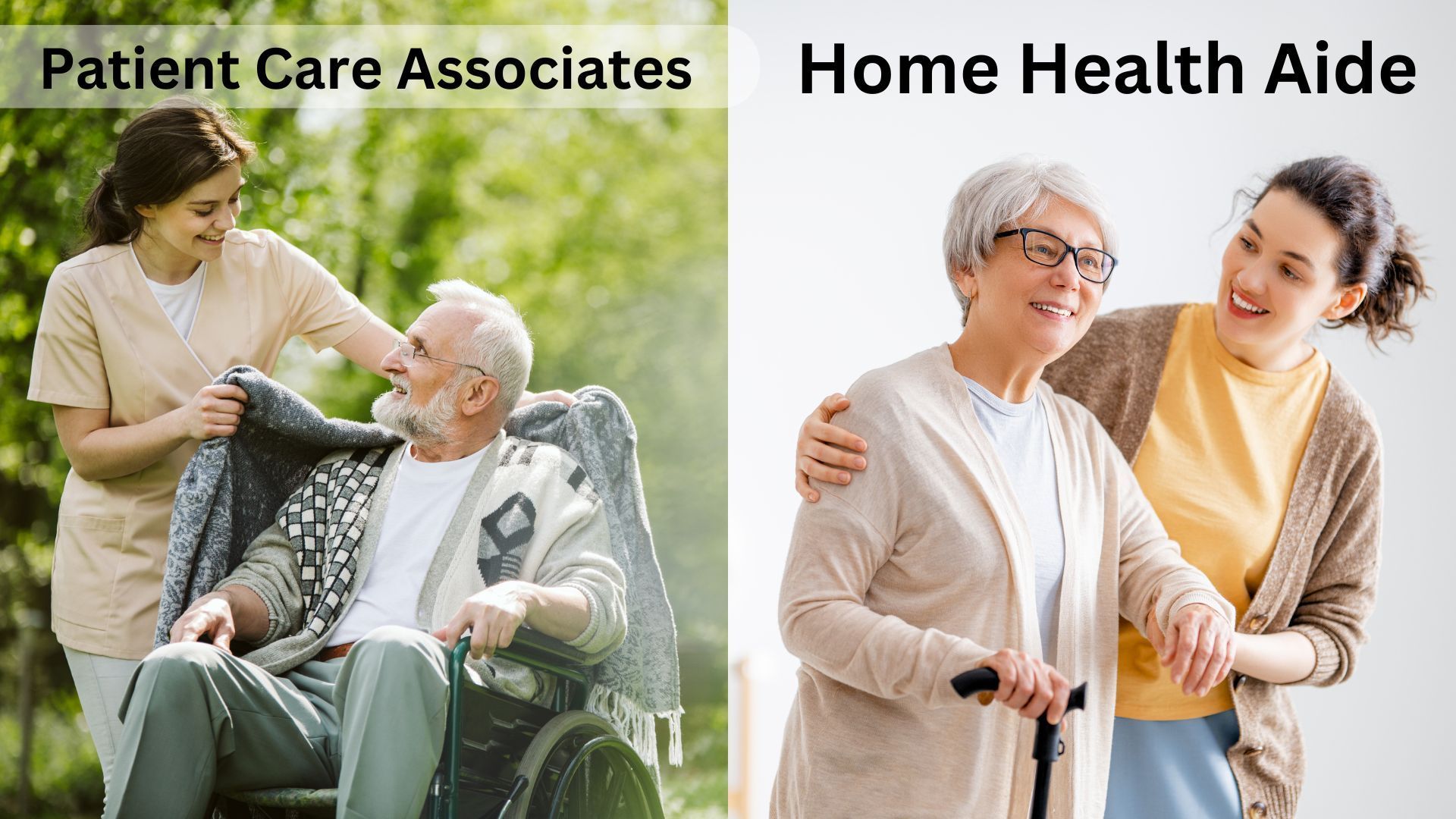Understanding the Similarities & Differences Between PCA and HHA Training

When considering a career in caregiving, you may come across two common roles: Personal Care Aide (PCA) and Home Health Aide (HHA). Both positions involve assisting individuals who need help with daily living tasks, but there are important distinctions in their training, responsibilities, and scope of care. If you're deciding between PCA and HHA training, understanding the differences and similarities will help you choose the path that aligns with your career goals.
Similarities Between PCA and HHA Training
- Basic Caregiving Skills : Both PCA and HHA training programs teach foundational caregiving skills. These include helping clients with daily activities like bathing, dressing, grooming, feeding, and mobility assistance. Both roles focus on personal care and improving the quality of life for individuals who may be elderly, disabled, or recovering from an illness.
- Home-Based Care Focus :PCAs and HHAs typically provide care in home settings. This means both roles require training that emphasizes safety and comfort in a home environment. You'll learn how to assist clients while respecting their living space, maintaining their dignity, and promoting independence.
- Training Duration The training for PCAs and HHAs is relatively short compared to other healthcare roles. PCA programs often require around 40 to 75 hours of training, while HHA training programs are slightly longer, generally ranging from 75 to 120 hours. The duration of both programs is designed to quickly prepare caregivers to enter the workforce and provide essential support to clients.
Key Differences Between PCA and HHA Training
- Medical Assistance Skills One of the most significant differences between PCA and HHA training is the level of medical care provided. While PCAs focus mainly on non-medical, personal care tasks, HHAs receive additional training in basic health-related tasks. HHAs are trained to:
- Take vital signs (blood pressure, temperature, pulse, etc.)
- Monitor and report changes in a patient’s condition
- Administer medication under supervision
- Perform basic wound care and assist with medical equipment
- This medical training allows HHAs to work with clients who have more complex health needs, while PCAs typically assist individuals who require only personal care.
- Scope of Responsibilities Because of the difference in training, the scope of care provided by HHAs is broader than that of PCAs. HHAs can work in more diverse settings, including private homes, assisted living facilities, and even hospice care, where clients may have more serious medical conditions. PCAs, on the other hand, usually focus on basic caregiving in home settings and are limited in the type of health-related tasks they can perform.
- Certification Requirements In many states, the certification requirements differ between PCAs and HHAs. HHA programs often require a state certification after completing training, and HHAs must meet federal guidelines to work in Medicare or Medicaid-certified agencies. PCAs may not need certification, depending on the state, and may have fewer regulations governing their training and work.
- Career Growth Opportunities Due to the additional medical training HHAs receive, they often have more opportunities for career advancement in healthcare. For example, HHAs can transition to becoming a Certified Nursing Assistant (CNA) or pursue further nursing education. PCAs may also advance their careers but will typically need to obtain additional training to move into more specialized healthcare roles.
While both PCA and HHA training programs provide essential skills for caregiving, the key differences lie in the medical responsibilities, scope of care, and certification requirements. PCAs focus on providing personal care and assistance with daily tasks, while HHAs are trained to handle more complex medical tasks and work with clients who have health-related needs.
When choosing between PCA and HHA training, consider your career goals and the type of care you wish to provide. If you're interested in a more medically-focused role with potential for career growth, HHA training may be the better fit. However, if you're looking to provide essential personal care and support in a home setting, PCA training offers a rewarding pathway into caregiving.





